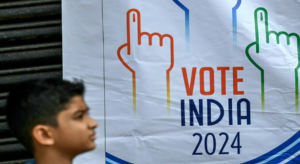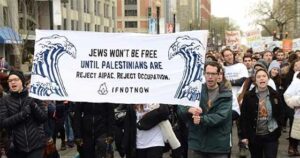On the 79th anniversary of the Russian victory over Nazi Germany
In spite of the effort of many ideologists of the single thought to impose nihilism in the interpretation of historical facts, and to try to eradicate from the social conscience the unavoidable references to the past that nourish the struggles of the present, it is essential to value the sobering significance of the second world war that began in 1936, with the aggression against the Spanish Republic and its bloody civil war, that finally culminated with the capture of Berlin by Soviet troops in the first days of May 1945.
Likewise, it is necessary to recognize the decisive role of the peoples of the Soviet Union in the defeat of Nazi-fascism, their extraordinary contribution to the victory, despite the terrible sacrifices and the loss of millions of human lives that this entailed. The meaning of such an epic must be taken into account today, not only because fascism, terrorist expression of capitalism, is resurgent in Europe and other regions of the world, but also because the example of integrity, dedication, self-sacrifice and heroism of millions of anti-fascist fighters of many nationalities must be known by the new generations and transmitted as an invaluable heritage for the preservation of the human species.
Testimony of the humanist value of that deed is the whole combination of poets, writers, painters and artists who actively militated in the antifascist organizations, when the simple fact of writing a poem, painting a wall, or expressing a thought in the classroom or in the street, could mean prison, torture and even death. But perhaps the most characteristic feature of this anti-fascist generation was that it was made up of millions of people from all latitudes of the planet, who responded to the call of the liberating struggle, with a firm conviction of the need to destroy a criminal system that threatened the existence of humanity: men and women, mostly from modest origins, who with commitment and social conscience crossed seas and borders with no other purpose than to give themselves fully to the struggle, with the simplicity and generosity of love for their fellow man.
On the battle fronts, and on the “internal front”, in the very ranks of the enemy, carrying out intelligence tasks, in the guerrilla camps, in the rearguard, in the cells of the clandestine groups of the occupied cities, in the prisons and in the concentration camps, there were the antifascists who resisted, who never betrayed their comrades, who did not let fear paralyze them and maintained their dignity and decorum, even in the most adverse conditions, who neither collaborated nor betrayed, nor thought of saving their own skin at any cost. They bore the burden of the war and made possible the triumph of the peoples at the beginning of May 1945.
We want to remember them precisely today, when the whole world is witnessing the genocide of the Palestinian people, and at a time when the United States, the Zionist State of Israel and its European allies, as the fascists did in the past, are trying to impose their world order based on the supposed superiority of their war machine and on the basis of the misrepresentation of information and the rigid control of the mass media.
As never before, after World War II, the peoples of the world are facing the real threat of a new war, which, if it occurs, would be the last war fought by mankind. Even more so, when we observe the deterioration of international organizations, particularly the United Nations (UN), which has become a docile instrument of the policies of the hegemonic capitalist countries and visibly inoperative to stop this genocide.
The chain of aggression of imperialism and militarized-criminal capitalism on our peoples and the atmosphere of ideological confusion created by the institutionalized left and the tutelary democracy, make it even more necessary to keep alive the example of anti-fascist resistance.
In particular, the left that continues to claim socialism and the right to revolutionary utopia, to the construction of a society without exploitation, just and democratic, raises the need for this struggle for memory, for not forgetting and not forgiving. To retake the optimism that characterized the antifascist fighters.
To always remember the Czech communist, Julius Fucik, who, at the foot of the scaffold, on May 19, 1943, wrote in his testament: “To the comrades who survive this final battle and to those who come after us, I strongly shake your hand. In my name and in the name of Gustina. We have done our duty. I repeat once again: we have lived for joy; for joy we have gone to battle and for joy we die. May sadness never be attached to our name”.
(Gilberto López y Rivas is a Mexican anthropologist, essayist and politician. He is professor-researcher at the National Institute of Anthropology and History, Mexico. Courtesy: La Jornada. Translation by Resumen Latinoamericano, a newsletter whose focus is news and analysis coming primarily from Latin America by writers, researchers, and activists living there.)




